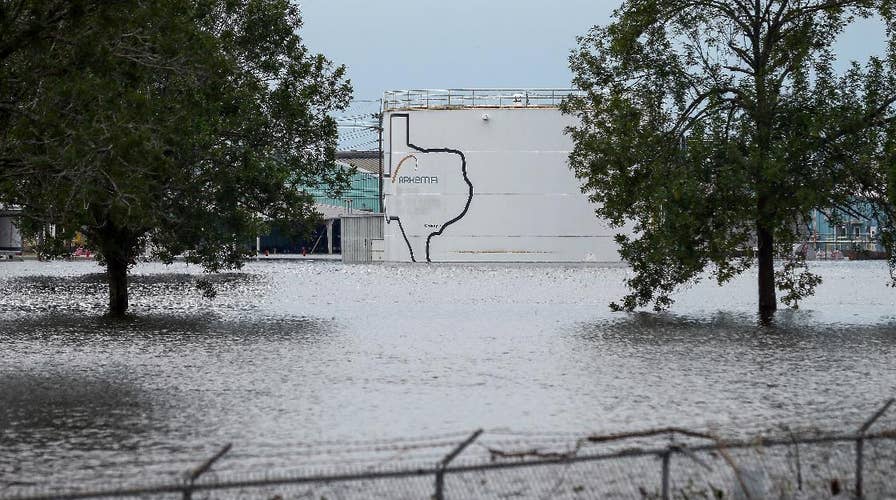Harvey fallout: Arkema chemical plant explosions explained
Hurricane Harvey flooded Arkema chemical plant in Texas, causing chemical explosions. Why did it happen and could it have been prevented?
Arkema's chemical plant in Crosby, Texas, was rocked with two explosions early Thursday following flooding caused by Tropical Storm Harvey. Afterward, fire from the plant and plumes of dark smoked filled the sky.
The plant produces liquid organic peroxides that are used primarily in the production of plastic. “A peroxide is a compound that contains an oxygen-oxygen bond. These O-O bonds are very weak, which means that a small amount of heat will break the bond, leading the molecule to fall apart,” Nancy Goroff, professor and chair of the Chemistry Department at Stony Brook University, told Fox News.
“So once the organic peroxide is heated enough to break the O-O bond, it will start to react, generating more heat and causing the bulk material to burn,” she added.
HOW NASA IS TRACKING TROPICAL STORM HARVEY
Floodwater caused the plant and its backup generators to lose power. Arkema officials notified the authorities and evacuated 1.5 miles of the surrounding area.
“These things can burn very quickly and violently; it would not be unusual for them to explode,” said Richard Rennard, Arkema executive, at a news conference. “We believe it hasn’t been a massive explosion; it’s just been these vapor release valves that popped.”
Fire developed in one of nine storage containers that hold the peroxides. Officials expect, and are waiting, for the other eight containers to do the same.
ISLAND OF FIRE ANTS SPOTTED ON HOUSTON FLOODWATERS
“They should not have been operating,” Nicholas Ashford, professor of technology and policy at the MIT School of Engineering told Fox News. “They should have basically emptied the tanks by moving them to storage facilities or venting them -- lose them to the atmosphere.”
There are concerns of toxicity from the fires and chemical release. Arkema described the smoke as “noxious.”
“However, safety officials will have to determine what byproducts are released with the smoke. Most likely, the primary danger from this fire will be the same as with any fire," says Goroff. "The smoke will be noxious, and should be avoided, as with any smoke."
TROPICAL STORM HARVEY: IS TWITTER BECOMING THE NEW 911?
“We continue to monitor smoke and air quality, and the potential for additional fires in the area” the Environmental Protection Agency said, in a statement.









































